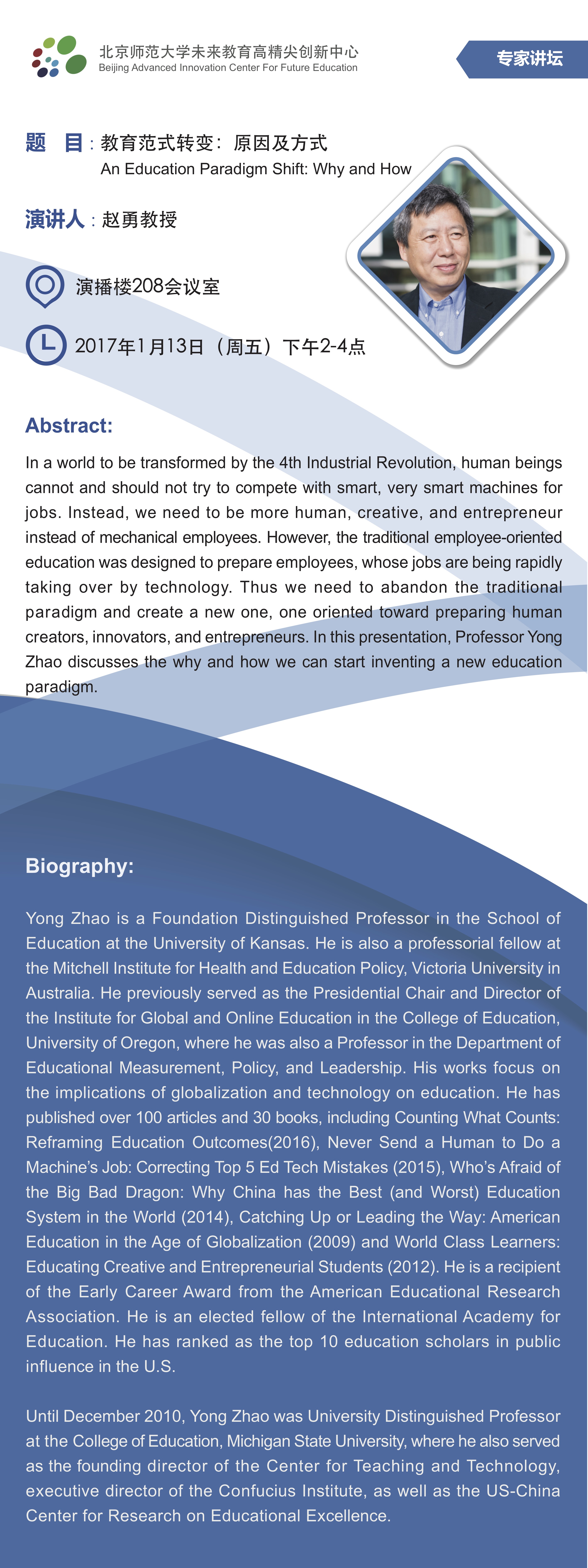Abstract:
In a world to be transformed by the 4th Industrial Revolution, human beings cannot and should not try to compete with smart, very smart machines for jobs. Instead, we need to be more human, creative, and entrepreneur instead of mechanical employees. However, the traditional employee-oriented education was designed to prepare employees, whose jobs are being rapidly taking over by technology. Thus we need to abandon the traditional paradigm and create a new one, one oriented toward preparing human creators, innovators, and entrepreneurs. In this presentation, Professor Yong Zhao discusses the why and how we can start inventing a new education paradigm.
Bio:
Yong Zhao is a Foundation Distinguished Professor in the School of Education at the University of Kansas. He is also a professorial fellow at the Mitchell Institute for Health and Education Policy, Victoria University in Australia. He previously served as the Presidential Chair and Director of the Institute for Global and Online Education in the College of Education, University of Oregon, where he was also a Professor in the Department of Educational Measurement, Policy, and Leadership. His works focus on the implications of globalization and technology on education. He has published over 100 articles and 30 books, including Counting What Counts: Reframing Education Outcomes(2016), Never Send a Human to Do a Machine’s Job: Correcting Top 5 Ed Tech Mistakes (2015), Who’s Afraid of the Big Bad Dragon: Why China has the Best (and Worst) Education System in the World (2014), Catching Up or Leading the Way: American Education in the Age of Globalization (2009)and World Class Learners: Educating Creative and Entrepreneurial Students (2012). He is a recipient of the Early Career Award from the American Educational Research Association. He is an elected fellow of the International Academy for Education. He has ranked as the top 10 education scholars in public influence in the U.S.
Until December 2010, Yong Zhao was University Distinguished Professor at the College of Education, Michigan State University, where he also served as the founding director of the Center for Teaching and Technology, executive director of the Confucius Institute, as well as the US-China Center for Research on Educational Excellence.
